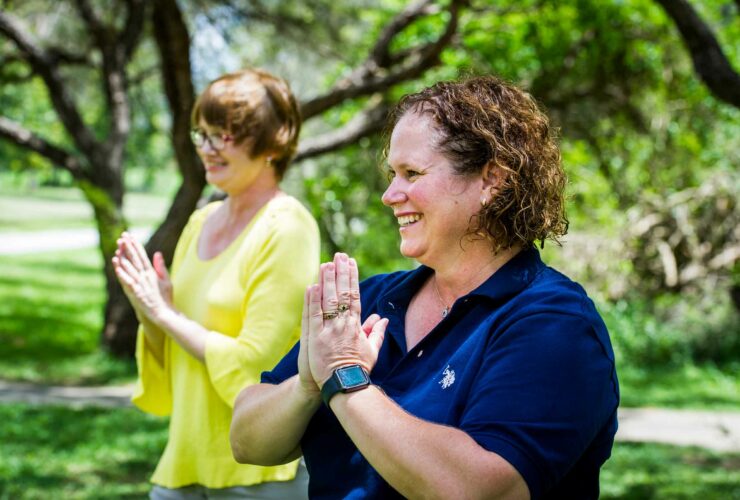Does the NDIS fund Physiotherapy treatment?
Physiotherapy can help people with a range of conditions including physical disabilities, autism, intellectual or genetic disabilities, stroke, brain injury, cerebral palsy and neurological disorders.
Physiotherapy can improve your mobility, strength and range of motion so you can more fully participate in everyday tasks and be as independent as possible. Physiotherapy can also be effective in treating and managing pain, which can have a range of positive impacts from a health and wellbeing perspective.
The NDIS and physiotherapy
Physiotherapy is under the Capacity Building section of the NDIS plan, in a section called Improved Daily Living.
This category is designed to provide assessment, training, supports or therapy to assist you to develop skills to increase independence. It also covers a wide range of other therapies, including Occupational Therapy and Speech Pathology.
While physiotherapists can assist with many things, the services they provide often relate to improving movement and mobility and enhancing your overall ability to be more independent.
When does the NDIS fund physiotherapy treatment?
The NDIS may fund physiotherapy if the need is directly related to a disability, will assist you to meet your goals and covers the reasonable and necessary test.
While the use of physiotherapy can be effective as a pain management strategy, it may only be covered by the NDIS if the pain is caused by a disability, not by other conditions.
If the need to obtain physiotherapy treatment is not directly related to your disability, then it will not be covered. For example, the NDIS may not fund physiotherapy required for rehabilitation after surgery. This service may be provided through the health system instead.
What Physiotherapists do
Physiotherapists support clients in a range of different ways to meet their NDIS goals. These can include:
- Mobility assessment and provision of suitable equipment
- Falls prevention
- Manual handling assessment and training
- Exercise programs to improve strength, mobility, balance and range of motion
- Pain management – for example, for chronic pain or arthritis
- Hydrotherapy
- Rehabilitative and restorative care
Physiotherapy and achieving your goals
The use of funding for any NDIS budget category need to relate directly to your goals.
The types of goals that physiotherapy might be able to assist with include:
- Improving your mobility so you can be more independent getting out and about
- Increasing your range of motion so you can participate in more self-care tasks or activities of daily living
- Enhancing your endurance or strength so that you can do more things for yourself
- Developing your muscle tone and balance to help with posture, attention and your ability to participate in a range of everyday tasks (sitting in a car, riding a bike etc)
- Managing or reducing pain to help you live a more active and sociable life and improve your mental health
- Early intervention for babies and young children with a disability, assisting in the development of motor skills like balance, sitting, crawling and walking
If you think you might benefit from Physiotherapy, contact us today and speak to our team.


